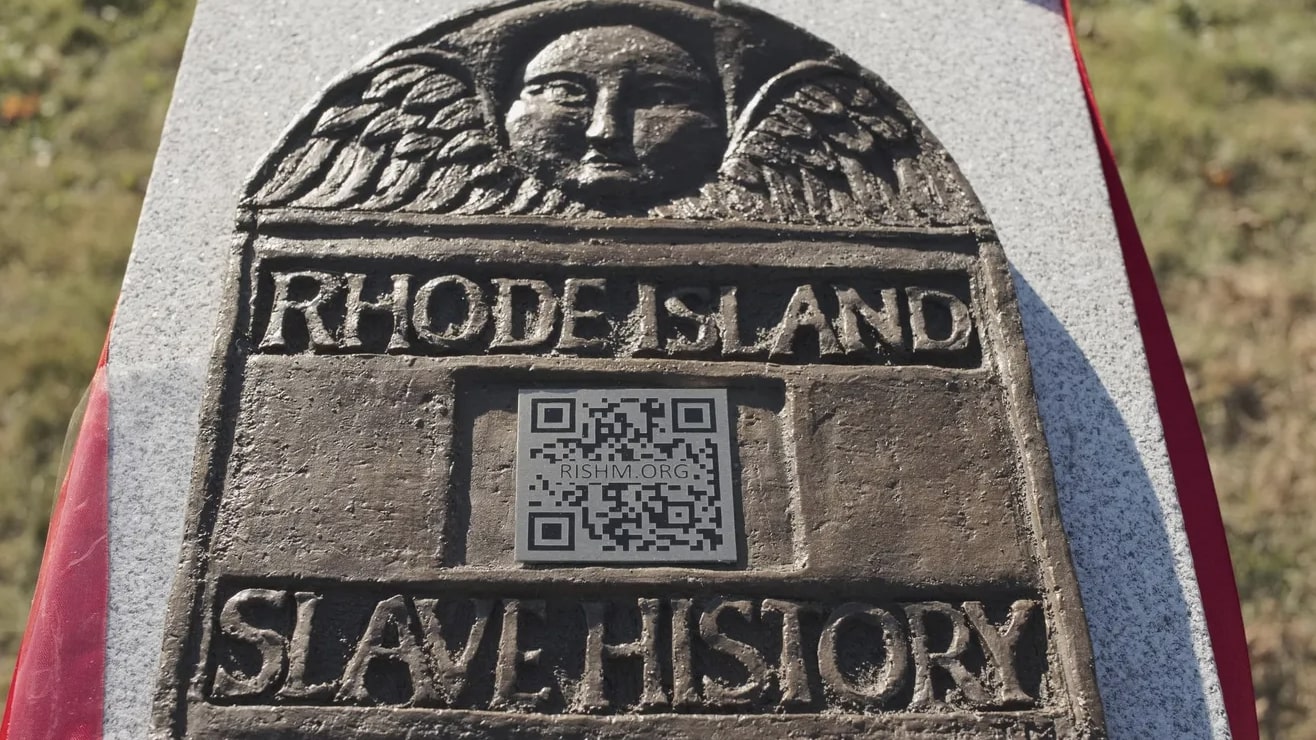The Center for the Humanities at the University of Rhode Island is working to continue to recognize the slave trade root history. PHOTO CREDIT: Newportri.com
Rhode Island’s association with the slave trade has been historically overlooked, but modern-day advocates are dedicated to raising awareness through education.
The Center for the Humanities at the University of Rhode Island hosted a virtual panel on “Recognizing the Legacy of Slavery in Rhode Island” on March 3.
Evelyn Sterne, associate professor of history and director of the URI Center for the Humanities, introduced the event’s moderator, Joanne Pope Melish, emeritus associate professor of history at the University of Kentucky.
Victoria Johnson, a member of the founding committee and steering committee for the Newport Middle Passage Ceremony and Port Marker Project, which commemorates and honors those many thousands lost in the Middle Passage of the slave trade, talked about the birth of the middle passage.
She talked about her introduction to the Newport Middle Passage Ceremony and Port Marker Project in 2016, where she went to an informational session to learn more about the project.
She knew she wanted to be part of the project when they spoke about their plan to create memorials to commemorate the arrival of slaves in Rhode Island, particularly in Providence, Bristol, Warren and Newport.
“I thought, ‘how could we not honor those thousands of Africans who were free in their homeland, forcefully captured and brought to Rhode Island through the triangular trade via the middle passage?’” Johnson said.
She discussed Rhode Island’s involvement in the American slave trade and described how rum was made in distilleries in Newport and then traded for captured people in Africa. According to her, these slaves were taken to the West Indies to be sold to work on sugar and rice plantations, and with the profits made from selling the crops, molasses was purchased and transferred to Newport. This trade triangle was repeated over and over again.
The Newport Middle Passage Ceremony and Port Marker Project worked with the Newport Mayor, Harry Winthrop, to create a Newport Slave Trade Memorial, a physical monument that will honor the Africans who lost their lives through the triangle trade, along with the survivors and their descendants. A sign currently sits at the memorial location in Liberty Square in Newport, designating the area as a future site for the physical monument.
“We have to teach the honest truth for a better future, it should be about equity in the representation of all people,” Johnson said. “This memorial will glow with realism and be the first structure built to remember and honor African American historical heritage in the city of Newport.”
Charles Roberts, founder and executive director of Rhode Island’s Slave History Medallions, a nonprofit state-based education program that marks historic locations with educational bronze medallions, talked about his method for educating throughout the state.
Roberts founded Rhode Island’s Slave History Medallions in 2017, which places plaque-like markers, or medallions, throughout Rhode Island, each with a QR code that can be scanned with the camera feature of any phone to bring up information on the history of the specific location scanned.
“I saw a need to go even further,” Roberts said, “to make sure that the people in the state realized their opportunity to examine the history and the economic development of the state…so that hopefully these stories would inspire racial healing.”
So far, there are medallions in seven cities and there are plans to put the historical markers in 25 cities throughout Rhode Island.
James DeWolf Perry, who serves on the board of directors of the Center for Reconciliation in Providence and co-founded the Tracing Center on the Histories and Legacies of Slavery, talked about how acknowledging history is foundational for advocacy.
Perry spoke about the origins of the Center for Reconciliation back in 2007 during the filming of “Traces of the Trade,” a PBS documentary about the legacy of the slave trade in New England.
Perry was the principal historical consultant on the film, for which he was nominated for an Emmy Award. Perry also appeared throughout the film because he is a descendant of James DeWolf, the most prolific slave trader in U.S. history.
The Episcopal Cathedral in Providence suspended religious services because the building was in disrepair, and the diocese was trying to come up with creative uses for an Episcopal Cathedral in the 21st century. The idea from the documentary of remembering history was used to create a center for racial reconciliation and healing.
“Our vision is to educate the public about the history of slavery and race in Rhode Island, as well as related difficult issues of history,” Perry said. “Not just to raise awareness of this history and the lessons that the history holds for us today, but to try to help the public become aware of the legacy of this history and help jumpstart conversations about how we can heal today and about how advocacy can be engaged in for racial justice based on our knowledge of the past.”
Perry also said that it’s important to recognize the Episcopal Church’s complicity in slavery and racism in both the state and the country as a whole.
“So we come to the table, acknowledging in a very candid way,” Perry said, “the ways in which we as a church have benefited from this history, in order to help all Rhode Islanders feel comfortable acknowledging the ways in which they and their families may have been connected to this history as well.”
The final event in the series by the Center for Humanities will feature Annette Gordon-Reed, who will speak about her book, “On Juneteenth” at 7:00 p.m. on April 14.





